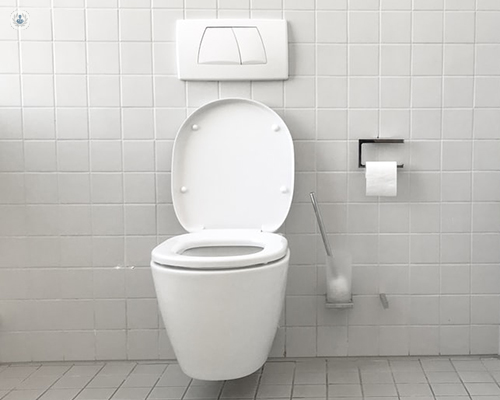Blood in my urine (haematuria): Should I be worried?
Autore:If you've ever seen blood in your urine, you may be worried. Blood in urine, also called haematuria, can sometimes be a sign of a serious medical condition. In his latest online article, renowned consultant urological surgeon Mr Ivo Dukic explores what haematuria is, its possible causes, its seriousness, treatment options, and when you should seek medical attention.

What is haematuria?
Haematuria refers to the presence of blood in your urine. Urine is usually clear, yellow, or pale, but haematuria can make it turn pink, red, or even brown. The blood in your urine may be visible to the naked eye (visible haematuria) or only detectable under a microscope or on a urine dipstick test (non-visible haematuria). A trace of blood on a urine dipstick test is not usually significant and does not need further investigation.
What causes haematuria?
There are many different causes of haematuria, including:
- Urinary tract infections (UTIs)
- Kidney stones
- Enlarged prostate (in men)
- Cancer of the bladder or kidney
- Medications, such as blood thinners
- Injury to the urinary tract
- Vigorous exercise
Is haematuria a serious problem?
The seriousness of haematuria depends on its underlying cause. In many cases, it's not a sign of a serious medical condition. But it's important to see a doctor to rule out more serious causes, such as cancer.
When should I see a doctor about haematuria?
You should see a doctor if you notice any blood in your urine, even if it's just once. You should also see a doctor if you have any other symptoms along with haematuria, such as:
- Pain when you urinate
- Pain in your abdomen
- Changes in your urinary habits
If you're over 40 or have risk factors for urinary tract cancers, such as a family history of cancer, it's important to see a doctor right away if you notice any blood in your urine.
How is haematuria treated?
The treatment of haematuria depends on its underlying cause. For example, if you have a urinary tract infection your doctor may prescribe antibiotics. If you have kidney stones, your doctor may recommend medication to break down the stones, a procedure to remove them or continued monitoring.
If you have cancer, your doctor may recommend further tests such as camera tests, surgery, chemotherapy, radiation therapy, or a combination of these treatments.
Mr Ivo Dukic is a highly respected Consultant Urological Surgeon with over 15 years of experience. To schedule a consultation with Mr Dukic, please visit his Top Doctors profile today.


